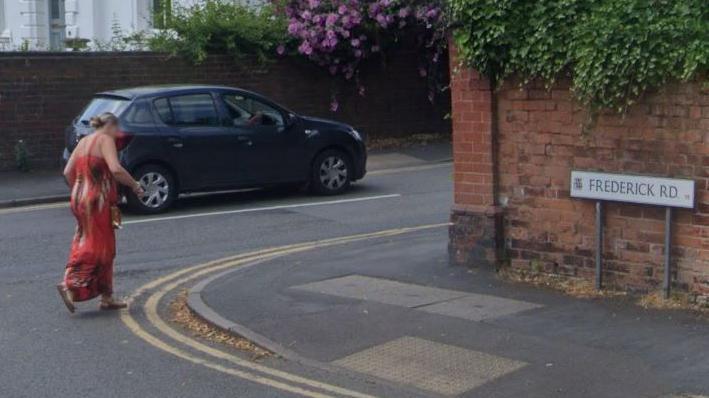Crash junction still poses risk to life - coroner

Motorcyclist Charlotte Noordam was killed when she was hit by a car after failing to comply with a stop sign at the junction between Frederick Road and St James Road, in Edgbaston
- Published
A council has been warned by a coroner to take action to make a Birmingham road junction safer after a motorcyclist was killed in a crash.
Charlotte Noordam was on Frederick Road, Edgbaston, on 8 March, when she failed to comply with a stop sign at the St James Road junction and was hit by an MG3 car, assistant coroner Ana Samuel was told.
Ms Samuel told an inquest there had been at least 27 other incidents at the junction between May 2014 and March this year.
She said there was evidence from the city council to indicate there were potential measures it could take. The authority stated people must be prioritised over vehicles and it would bring forward "a pipeline of projects to tackle this".
In a report to the council, Ms Samuel said that at 14:10 GMT on 8 March Ms Noordam "crossed into the path of and into collision with" the car in Edgbaston, after failing to stop at the junction.
'Inherent confusion'
The MG driver was travelling with right of way along St James Road, the assistant coroner for Birmingham and Solihull said, and access to the street from Frederick Road was "controlled by a STOP".
Access onto St James Road from Frederick Road was also controlled by a give way sign, she said, and both streets had a 20mph (32km/h) speed limit.
Following a post-mortem examination, the medical cause of Ms Noordam's death was from multiple injuries she sustained in the crash, the coroner stated.
Ms Samuel said that during the inquest, evidence had emerged that "revealed matters giving rise to concern".
The council had said that if a junction was being designed from scratch, it would oppose using a non-signalled crossroad junction, because of "the inherent confusion around priority of movement", Ms Samuel said.
"Whilst the road layout, including signage and road markings, complies with the legal requirements, this does not appear to have mitigated against the prevalence of incidents at the stop junction," she said.
'Prevent future deaths'
A police investigator gave evidence that, in his experience, the number of collisions at the stop junction raised questions about its safety, the coroner stated.
Ms Samuel added that evidence from the council suggested there were "potentially additional measures that could be considered to mitigate any safety risks so far as reasonably practicable".
"I am concerned that there is still a risk to life for users of the junction," she concluded.
"In my opinion action should be taken to prevent future deaths and I believe you have the power to take such action."
Council cabinet member for environment and transport Majid Mahmood said the authority provided evidence at the inquest and had received the coroner's report, which it was considering.
He added it continued to work with partners "to do whatever it takes to make roads safer for everyone, which is what our Road Harm Reduction strategy sets out".
Mahmood said: "Individuals must also take responsibility – it is not acceptable to drive in a way that could harm others."
The cabinet member stated people "must be prioritised over vehicles - this is especially important in residential areas, local centres and near to schools".
"Over the coming years we will bring forward a pipeline of projects to tackle this, alongside investment to transform public transport and active travel as set out in the Birmingham Transport Plan."
Get in touch
Tell us which stories we should cover in Birmingham and the Black Country
Follow BBC Birmingham on BBC Sounds, Facebook, external, X, external and Instagram, external.